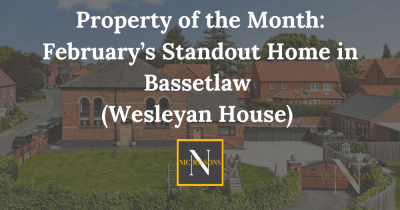Is It Now More Cost-Effective to Move Rather Than Renovate?
In 2025, homeowners in Bassetlaw face a pivotal decision: Is it more economical to move to a new property or to renovate the existing one? With fluctuating house prices, evolving mortgage rates, and escalating construction costs, understanding the financial and personal implications of both options is crucial for making an informed decision.

Current Trends in the East Midlands Housing Market
House Prices in Bassetlaw
Mortgage Rates and Financing Options
Supply and Demand Dynamics
The Cost of Moving
- Stamp Duty: For a property priced at £206,000, the stamp duty liability would be approximately £1,120.
- Estate Agent Fees: Typically ranging from 1% to 3% of the sale price, equating to £2,060 to £6,180.
- Legal Fees: Conveyancing services for buying and selling usually cost between £2,500 to £3,500.
- Moving Costs: Hiring professional movers can set you back £500 to £3000, depending on distance and volume.
Pros and Cons of Moving
Pros:
- Immediate Upgrade: Access to a property that meets your current needs without the hassle of construction.
- Potential for Better Location: Opportunity to relocate to a more desirable area or closer to work and amenities.
Cons:
- High Upfront Costs: Significant expenses related to the purchase process.
- Market Uncertainty: Potential for property devaluation or market instability affecting investment.
The Cost of Renovating
- Home Extensions: Costs range from £1,775 to £3,000 per square metre, with an average of £2,387.50 per square metre (Source: checkatrade)
- Loft Conversions: Typically around £45,000, with additional costs if structural changes are required. (Source: Fifi McGee)
- .Kitchen Remodels: Major renovations in large kitchens can cost approximately £20,000, up from £15,000 the previous year. (Source: The Times)
Factors Driving Up Renovation Costs
- Material Price Inflation: Increased costs for timber, steel, bricks, and cement due to supply chain disruptions.
- Labour Shortages: A scarcity of skilled workers leading to higher wages and extended project timelines.
- Planning Permissions and Regulations: Navigating local council requirements can add time and fees to projects.
Challenges in Planning and Regulations
- Detailed architectural plans.
- Compliance with building regulations.
- Potential community consultations.
Which Option is More Cost-Effective?
- Stamp Duty: £2,500
- Estate Agent Fees (2%): £4,120
- Legal Fees: £2,750
- Moving Costs: £750
Return on Investment (ROI)
- Moving: ROI depends on market appreciation, which can be unpredictable.
- Renovating: Quality renovations often lead to increased property value, with certain projects (like kitchen remodels) offering higher returns.
Intangible Considerations
- Disruption: Renovations can be intrusive and time-consuming, while moving involves the stress of relocation.
- Personal Attachment: Emotional ties to a home and community may influence the decision.
- Long-Term Needs: Consideration of future family or lifestyle changes is essential.
Conclusion and Recommendations
- Growing Families: If space is a concern and the current property cannot accommodate an extension, moving may be the preferable option.
- Retirees: Those looking to downsize or move closer to amenities might find selling more beneficial.
- Remote Workers: Investing in a home office through renovation could enhance both property value and quality of life.




